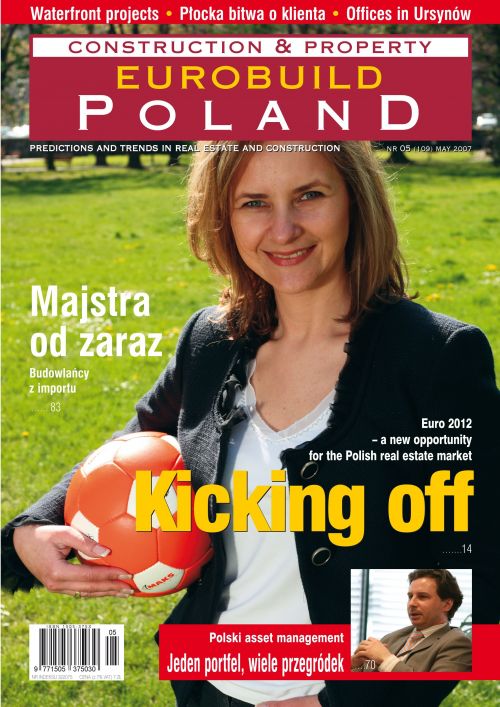Poland will be co-hosting the European football championships in 2012! – perhaps the most surprising and welcome news this year. The construction industry also has a smile on its faceNow that the initial elation has subsided, let us take a measured look at what the decision means for the growth of the Polish construction market. This is what the experts have to say:Marta Dziarnowska, Central Europe regional director, Arcelor MittalThis is surely going to prove a real challenge for our economy. Building materials are already at a premium on the market, so problems could arise with supplying sufficient quantities to build Euro 2012 facilities. New, large projects will create even greater headaches for residential market developers. The most urgent question requiring an immediate answer is whether Poland can make proper use of European Union funds. As far as my company goes, Euro 2012 will generate huge advantages, since steel is generally used in stadium construction. We believed Polan




























































